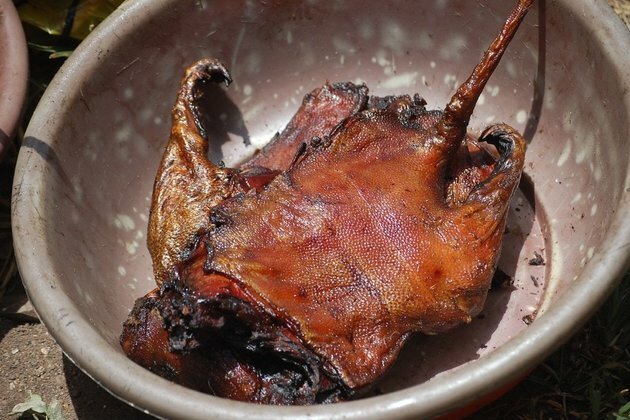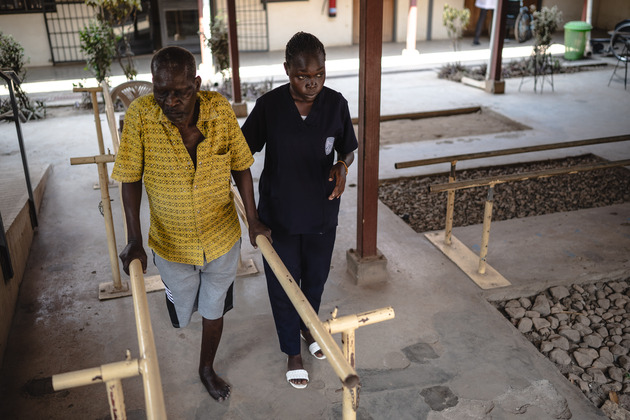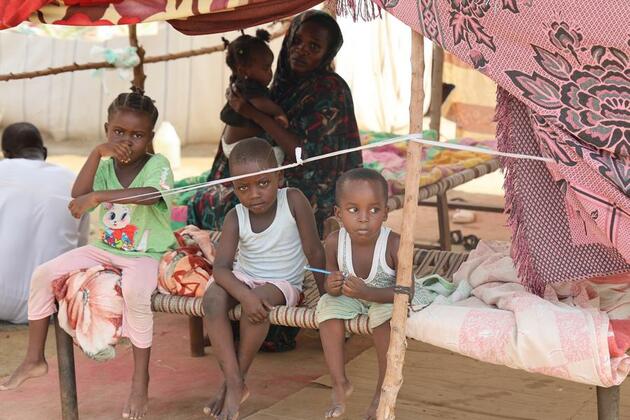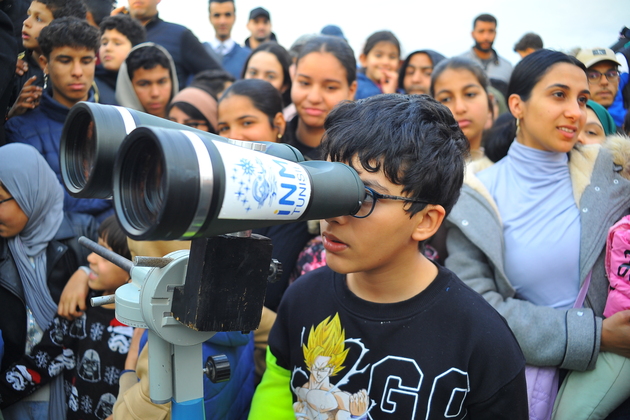Bushmeat in Ghana: consumer profiles may point the way to conservation
The Conversation
05 Aug 2021, 00:13 GMT+10

The bushmeat trade - meat from wild animals - continues to soar, mainly in unregulated and illegal markets worldwide. Ghana is one such market. One reason is that it's a source of income for poor rural households.
It's also an important source of nutrition. In West and Central Africa, bushmeat contributes about 80%-90% of the animal protein needs in certain rural areas.
Previous studies of bushmeat consumption in Ghana have focused narrowly on a few cities. My colleagues and I conducted a study to broaden the scope to urban and rural households in Ghana's three major ecological zones. We aimed to analyse individual consumer demographies and provide insights on different consumer segments. This could be used for public campaigns to change behaviours or promote domesticated bushmeat for sustainable forestry management.
The study revealed some differences in consumption between regions. It also led us to recommend safe meat harvesting strategies for conservationists.
Segmenting markets and consumers
The study was conducted in the three main ecological zones of Ghana. These are the high forest, transitional and savannah zones. The high forest zone has forest reserves containing species that are important for biodiversity in Ghana. A variety of wild game is hunted as bushmeat for the major markets in these areas.
The transitional zone has attributes of both the high forest and savannah zones. The Techiman market is located here, and because it is geographically a link between the north and south of Ghana, a high inflow of bushmeat is traded in this market.
In the savannah zone, we looked at Sene West, a district that has a major market centre and a national park.
In total, we interviewed 400 consumers. We focused on 14 variables including age, education, gender, household size, job and religion. People's feelings about nutrition, taste, disease, fear of poisoning and bushmeat preference were considered. We also looked at the price and availability of bushmeat.
About 67% of the respondents were bushmeat consumers. The most preferred bushmeat was grasscutter, a type of cane rat. Two antelope species (Maxwell's duiker and black duiker) were also popular.
Three variables were associated with not eating bushmeat: price, the age of the person, and their religion. The quantity of bushmeat consumed was influenced by fear of contracting diseases and of eating bushmeat contaminated with poison.
Consumption was associated with perceived positive taste, nutrients and availability. Consumers ate greater quantities of bushmeat if it came from a local eatery (known as a 'chop bar') and if it was smoked.
Consumers were more likely to be young, except for those in the forest zone. Where livestock meat was more available and affordable, bushmeat was less likely to be eaten. In the forest and transitional zones, more educated people were less likely to eat bushmeat. But in the savannah zone higher education meant higher income and a greater likelihood of eating bushmeat, which is more expensive in this zone.
Consumers did not seem concerned about contracting diseases or consuming poison from bushmeat - except in the savannah zone.
We also discovered that religion is sometimes a factor in whether people eat bushmeat. For example, many Muslims require certain rituals to be conducted while slaughtering an animal - which isn't usually done in bushmeat hunting. In the high forest zone, where the predominant ethnic group is Akan, some animals are culturally off limits but others can be eaten.
Unsurprisingly, chop bars emerged as the primary source of bushmeat for consumers. These local eateries are widely known for their diverse bushmeat offerings.
Consumption and conservation
The study results revealed that even though bushmeat consumption remains popular with some older people, there is an emerging market segment dominated by younger people.
With regard to forest management, the study recommends that the Wildlife Division of the Forestry Commission of Ghana enforce laws requiring only licensed chop-bar operators to sell bushmeat across the ecological zones, particularly in the transitional zone.
The public and chop-bar operators should be educated about buying wild game from licensed bushmeat hunters and sellers to prevent overharvesting.
Suppliers and producers of domesticated wild game should aim to maintain the taste of the meat while making it safe to eat. They should avoid using poison in harvesting and follow husbandry practices to reduce the likelihood of diseases that can spread from animals to people.
Marketing of domesticated wild game should target the younger group of consumers as they are less likely to be price-sensitive and more likely to buy in high quantities. A modern approach to marketing (such as digital marketing) might attract these consumers.
For conservationists and the government, religion and culture could serve to discourage the overharvesting of bushmeat from the wild.
Author: Richard Kwasi Bannor - Senior Lecturer, Agribusiness, University of Energy and Natural Resources 
 Share
Share
 Tweet
Tweet
 Share
Share
 Flip
Flip
 Email
Email
Watch latest videos
Subscribe and Follow
Get a daily dose of Madagascar Sun news through our daily email, its complimentary and keeps you fully up to date with world and business news as well.
News RELEASES
Publish news of your business, community or sports group, personnel appointments, major event and more by submitting a news release to Madagascar Sun.
More InformationAfrica
SectionXinhua Photo Daily | March 1, 2025
BEIJING, March 1 (Xinhua) -- A selection of the best press photos from Xinhua. A drone photo taken on Feb. 27, 2025 shows the construction...
SOUTH SUDAN-JUBA-PHYSICAL REHABILITATION CENTER
(250301) -- JUBA, March 1, 2025 (Xinhua) -- A nurse from the International Committee of the Red Cross (ICRC) South Sudan delegation...
Indian Coast Guard Ship 'Sachet' departs for Sudan with over 2 tons of life-saving medicines
New Delhi [India], March 1 (ANI): The Indian Coast Guard Ship Sachet departed for Sudan on Friday, carrying over two tons of life-saving...
US tariff hike on vehicle imports could impact Nigeria's auto market
ABUJA, NIGERIA — For longtime automotive importer David Tope, Nigeria's auto market has become increasingly difficult. He used to...
Paramilitary forces' attempt to form "parallel government" raises concern over deeper division in Sudan
A family is seen in a tent at a center for displaced people fleeing from conflict between the Sudanese Armed Forces and the paramilitary...
TUNISIA-TUNIS-RAMADAN-STARTING TIME-ANNOUNCEMENT
(250228) -- TUNIS, Feb. 28, 2025 (Xinhua) -- A boy observes the moon through a telescope at an observatory in Tunis, Tunisia, on Feb....
International
SectionChina launches live-fire drills after Vietnam's territorial claim
BANGKOK, Thailand: Chinese authorities said they started live-fire military exercises in the Gulf of Tonkin this week, just days after...
French warships join Philippines for South China Sea Drills
ABOARD THE CHARLES DE GAULLE, Philippines: France's nuclear-powered aircraft carrier and its warships arrived in the Philippines over...
Fresno State suspends two players, removes one amid gambling probe
FRESNO, California: Fresno State suspended two of its top men's basketball players last weekend and removed a third player from the...
Poland to continue covering Ukraine’s Starlink costs, says deputy PM
WARSAW, Poland: Deputy Prime Minister Krzysztof Gawkowski confirmed over the weekend that Poland has been covering the cost of Ukraine's...
Opinion - Israel's government exploited hostages
Israel sustained the West's support for its slaughter in Gaza for 15 months only through an intensive campaign of lies. It invented...
Pentagon to cut 5,400 jobs amid Trump’s federal workforce reduction
WASHINGTON, D.C.: The Pentagon announced this week that it will cut 5,400 jobs as part of President Donald Trump's plan to shrink the...













